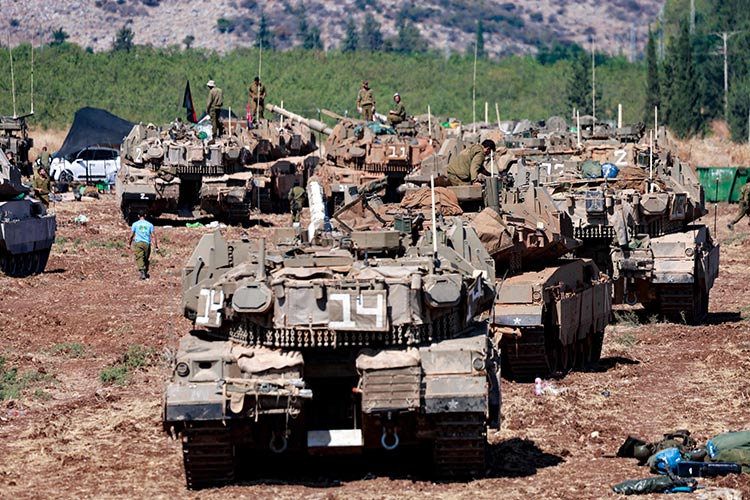All current data suggest that Israel will likely launch a ground operation in southern Lebanon, although questions revolve around the nature of this operation, and whether it will be as broad or limited as possible, with the aim of removing Hizbollah from the border areas and establishing a safe zone as a declared Israeli goal so that the settlers of the north can return again.
This was confirmed by the statement of Israeli Defense Yoav Gallant during his visit to the northern border, who said that the next phase against Hizbollah will begin soon, while Western reports revealed that Israeli commandos carried out a short ground incursion in preparation for the broader ground operation, similar to what preceded the invasion of the Gaza Strip.
In the clearest Israeli statement on the imminent ground incursion into southern Lebanon, Israeli Defense Minister Yoav Gallant said on Monday that the next phase of the war along the southern border of Lebanon will begin soon. Gallant said in a meeting of heads of local councils in northern Israel: “The next phase of the war against Hizbollah will begin soon.”
This came after Gallant told infantry and tank brigades in the north that Israel was preparing to enter Lebanon using infantry, tanks, ships and air power.
He added: “The elimination of Nasrallah is a very important step, but it is not the final step,” explaining: “Israel will use all available capabilities that may be required – your forces, other forces, from the air, from the sea and on the ground.”
Indeed, Israeli forces have carried out short incursions in recent days that were intended to pave the way for a broader ground invasion in the near future, according to six Israeli officers and officials who spoke to the New York Times, while other sources said that the ground invasion may be this week and could be changed at any moment.
It appears that the goal of the Israeli commandos who entered southern Lebanon before returning focused on gathering intelligence on Hizbollah positions near the border, as well as identifying the party’s tunnels and military infrastructure, in preparation for attacks from the air or the ground.
It is notable that in the weeks before Israel invaded Gaza in late October, Israeli soldiers carried out small raids inside Gaza that often lasted less than 12 hours before returning to Israel, to clear the area near the border, including tunnels, according to reservists who took part in the raids.
The short raids follow months of similar covert missions in which Israeli special forces briefly crossed the border to destroy some Hizbollah fortifications but did not attempt to pave the way for an invasion, according to four of the officials.
Two of the officials said the raids have increased in intensity and ambition in recent days as commanders prepared for a broader maneuver.
A ground incursion took place last week, with the Lebanese army informing the United Nations of the presence of Israeli forces in the area between Hanita on the Israeli side and Alma Al-Shaab on the Lebanese side, near the Blue Line, the border drawn by the United Nations after Israeli forces withdrew from southern Lebanon in 2000.
One official said the Israeli army told the commander of UNIFIL, a multinational peacekeeping force stationed in southern Lebanon since 1978 to help secure the border and prevent renewed conflict, that the brief ground incursion was intended to carry out engineering work, and the forces then withdrew.
A US official revealed that Israel informed Washington that it was planning a limited ground operation in Lebanon, adding that the scope of the operation would be smaller than Israel’s war against Hizbollah in Lebanon in 2006 and would focus on securing residential areas near the border.
Despite the announced American pressure from the United States to prevent its ally Israel from carrying out a major invasion, in anticipation of the outbreak of a comprehensive war in light of the likelihood of other regional parties entering, the Pentagon announced that it will keep the aircraft carrier strike group “USS Abraham Lincoln” and its accompanying ships near the Red Sea. The Lincoln was expected to leave when the aircraft carrier strike group USS Harry S. Truman arrives.
The Truman will now operate near the Mediterranean Sea. It is unusual for the United States to keep two aircraft carriers in the region.
Israel likely to launch a ground operation in southern Lebanon



